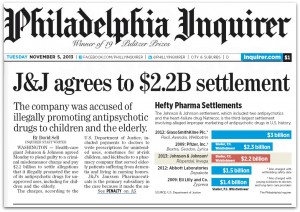Sheller Attorneys Are Actively Investigating the Hospice Industry and Seeking Hospice Whistleblowers
 Under the Medicare Hospice Benefit, patients who have been diagnosed with six months or less to live may receive government-funded palliative care. Qualifying patients who elect the Medicare Hospice Benefit must agree to forego curative care.
Under the Medicare Hospice Benefit, patients who have been diagnosed with six months or less to live may receive government-funded palliative care. Qualifying patients who elect the Medicare Hospice Benefit must agree to forego curative care.
The most common type of Medicare Hospice Fraud involves marketing hospice services to non-terminal patients and admitting and re-certifying them for payment under the Medicare Hospice Benefit. Such fraud is particularly disturbing, because it not only defrauds taxpayers and skims the already overextended healthcare budget but more importantly it coerces non-terminal patients to forego vital curative treatment.
 In addition to the fraudulent admission and re-certification of non-terminal hospice patients, there are several other types of Medicare Hospice Fraud including:
In addition to the fraudulent admission and re-certification of non-terminal hospice patients, there are several other types of Medicare Hospice Fraud including:
- Fraudulently coercing patients to “voluntarily discharge” before expensive hospital visits in order to shift such expensive costs away from the hospice company;
- Fraudulently back-dating admission and discharge elections;
- Providing less services than required by the patient care plan;
- Paying kickbacks in the form of in-kind services to nursing homes and other facilities;
- Fraudulently manipulating the Medicare Cap by a variety of schemes.
The Sheller Firm is uniquely qualified and experienced to handle the complex and strategic matters involved in whistleblower cases. You may be entitled to a portion of the government’s recovery. Fill out the confidential inquiry form on this page or call 800-883-2299.
The Whistleblower Practice & Successes of Sheller, P.C.
Whistleblowers need experienced FCA qui tam attorneys to represent their interests. They also need a law firm who understands the delicate employment matters that may be involved in becoming a whistleblower. Sheller, P.C. has a proven track record in supporting whistleblower confidentiality as they continue their employment.
Stephen Sheller is the visionary of Sheller, P.C., a firm with national focus.  Sheller believes that each case, each whistleblower, deserves the attention of the firm’s experts and resources from first contact to during and after the process. With four decades of civil litigation successes including battles against pharmaceutical, automotive and other corporate giants, Sheller is well-attuned to the winning strategy and negotiation required to bring justice for consumers. Directed to the conscientious employee or representative who has been a witness to, and maybe a victim of institutional corruption that defrauds the government, the Sheller firm has been at the forefront of protecting the rights of those individuals who step forward.
Sheller believes that each case, each whistleblower, deserves the attention of the firm’s experts and resources from first contact to during and after the process. With four decades of civil litigation successes including battles against pharmaceutical, automotive and other corporate giants, Sheller is well-attuned to the winning strategy and negotiation required to bring justice for consumers. Directed to the conscientious employee or representative who has been a witness to, and maybe a victim of institutional corruption that defrauds the government, the Sheller firm has been at the forefront of protecting the rights of those individuals who step forward.
To date, Sheller, P.C. has recovered more than $6 billion for the U.S. Government through its representation of pharmaceutical whistleblowers, including settlements over $1 billion with Johnson & Johnson, Eli Lilly & Co., and Pfizer, Inc.
Types of False Claims Act Whistleblower Cases
Most FCA cases deal with healthcare fraud, but many involve other types of fraud against the government. The major False Claims Act areas are:
- Healthcare fraud (including Medicare and Medicaid fraud)
- Defense contractor fraud
- Financial industry fraud
- Hurricane and other disaster relief fraud
- Fraud in federal grants and cooperative agreements
- Other fraud (a wide variety of cases)
A Brief History of the False Claims Act
The False Claims Act (FCA) is the nation’s major “whistleblower” law to combat fraud against the federal government. Often called the “Lincoln Law,” the False Claims Act was enacted during the Civil War to stop war profiteering. Congress weakened it during World War II but, in 1986, the Act underwent a major overhaul and Congress established meaningful rewards for whisteblowers. Congress later strengthened the Act further with major amendments through the Fraud Enforcement and Recovery Act of 2009 (FERA), the Patient Protection and Affordable Care Act (ACA), and the Dodd-Frank Wall Street Reform Act (the Dodd-Frank Act), among others.
FCA recoveries have increased dramatically since the Act was amended in 1986. In 1987, the government recovered just $86 million under the Act. Now, it recovers well over $1 billion each year in FCA cases. Sheller, P.C. contributed greatly to this change as this firm has recovered over $6 billion for the U.S. government in the last few years alone.
False Claims Act Essentials
This law has unusual procedures that are unfamiliar to many lawyers. For example, private citizen whistleblowers or “relators” file these cases on the government’s behalf. These cases by private citizens are known as “qui tam” cases. The cases remain confidential under seal while the government investigates and decides whether to join in the case.
As a reward, a private citizen who exposes the fraud can receive 15% to 30% of the money recovered. Depending on the case, money damages can be large. In addition, defendants can be liable for three times the amount of damages they cause (“treble damages”). The Act also protects individuals from retaliation for conduct protected under the statute.
State False Claims Acts
At least 30 states have passed their own False Claims Acts in order to protect state and local taxpayer funds. Congress has provided an incentive to states to pass their own False Claims Act.
Contact Us
If you have direct and independent knowledge of Medicare Hospice Fraud, then you may be entitled to a portion of the government’s recovery. To report Medicare Hospice Fraud, contact Sheller, P.C. by filling out the confidential inquiry form on this page or calling 800-883-2299 and asking for the False Claims Act team.





